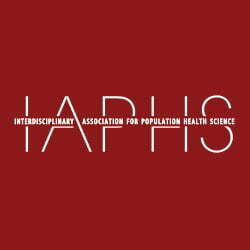Social Disparities in Health – Call for Proposals, Due Feb 28th
IAPHS StaffThe Network on Life Course Health Dynamics & Disparities in 21st Century America (NLCHDD) recently put out a call for proposals challenging researchers to investigate possible causes for the declining health of the U.S. population. The call emphasizes the potential role that socioeconomic position, race/ethnicity, and/or gender play in shaping major population health indicators, such as mortality, morbidity, and functional limitations. The Network hopes to launch several new pilot projects that investigate health disparities across population subgroups and in comparison to other high and middle-income nations. Grants of $10,000–15,000 will be awarded, and proposals are due Feb.28th, 2017 by 5 PM local time. Click here for the full submission criteria.
Examples of past successful proposals:
- Possible increased genetic and environmental risks of people who do not complete a high school education (Daniel Belsky, Duke University School of Medicine)
- The importance of changing educational selection for education-mortality trends in the U.S. (Jennifer Dowd, City University of New York)
- Possible connections between chronic pain and death (Hanna Grol-Prokopczyk, University at Buffalo SUNY)
- Variation in socioeconomic disparities by state (Melissa Martinson, University of Washington)
- Comparison of educational attainment with smoking trends (Katrina Walsemann, University of South Carolina)
- For more information about past recipients click here.
About the NLCHDD: The NLCHDD was founded by senior scientists from four major research Universities, including the University of Michigan, the University of Southern California, the University of Texas Austin and the University of North Carolina, who came together under the umbrella of the NLCHDD in order to further their goal of “significantly improving scientific understanding of important trends and disparities in population health” and to remain at the “forefront of research on the social determinants of US population health and health disparities.” NLCHDD is funded by the National Institute on Aging (NIA/ NIH) (R24AG045061), receiving co-funding from MiCDA. Leading members include James House (University of Michigan), Eileen Crimmins (University of Southern California), Mark Hayward (University of Texas at Austin), and Robert Hummer (University of North Carolina).






All comments will be reviewed and posted if substantive and of general interest to IAPHS readers.